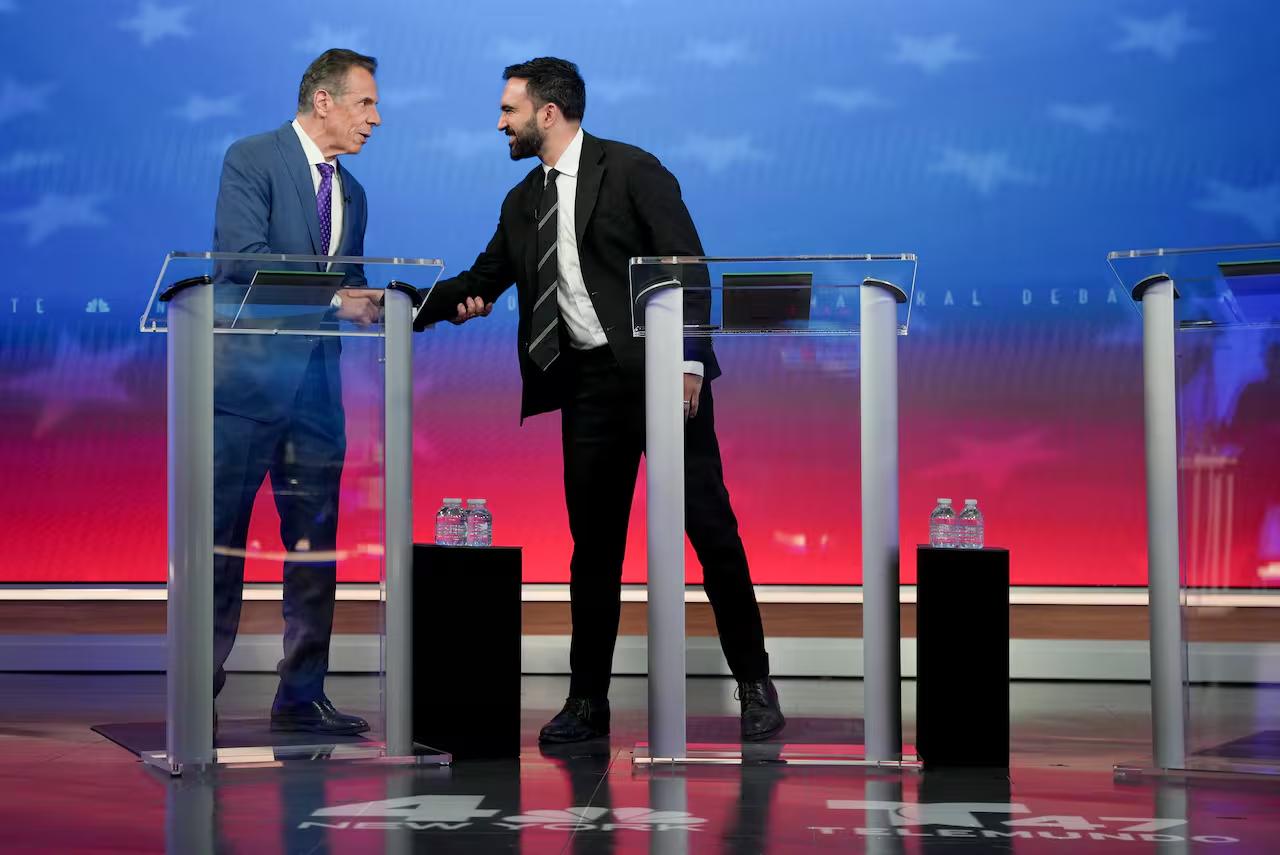A debate that contrasts experience with a call for political renewal
The recent New York City mayoral debate between Zohran Mamdani and former Governor Andrew Cuomo showcased the widening generational divide within the Democratic Party. Cuomo emphasized his long record in public service as proof of leadership, while Mamdani, 34, positioned himself as a representative of integrity and progressive reform.
Experience versus change
During the October 16 debate, Cuomo argued that leading the nation’s largest city requires proven experience, questioning Mamdani’s limited political background. Mamdani, who won the Democratic primary by a wide margin, countered that leadership also depends on integrity and vision, not just years in office.
Cuomo’s record, including controversies from his time as governor, has affected his appeal among younger voters. Mamdani, meanwhile, has connected with a generation eager for systemic change, proposing policies such as rent freezes and free city bus service to make living in New York more accessible.
A new approach to campaign communication
Beyond policy differences, the candidates’ campaign styles highlight their generational contrast. Cuomo’s campaign relies on traditional media and direct critiques, while Mamdani has leveraged social media with upbeat, humorous, and hopeful content that resonates with younger audiences.
Recent polls show that over half of Mamdani’s supporters are under 50, suggesting that his digital outreach strategy has effectively reshaped voter engagement among younger New Yorkers.
With early voting already underway, Mamdani’s continued lead could mark a historic shift. If elected on November 4, he would become New York’s first Muslim mayor — a symbolic moment reflecting both generational and cultural transformation in the city’s political landscape.



